Deep below the city that once recognized her as its queen, Isareth the Awakener rules over her undead minions. Magic: The Gathering has plenty of options for reanimation decks, and Isareth brings a unique take on the archetype.
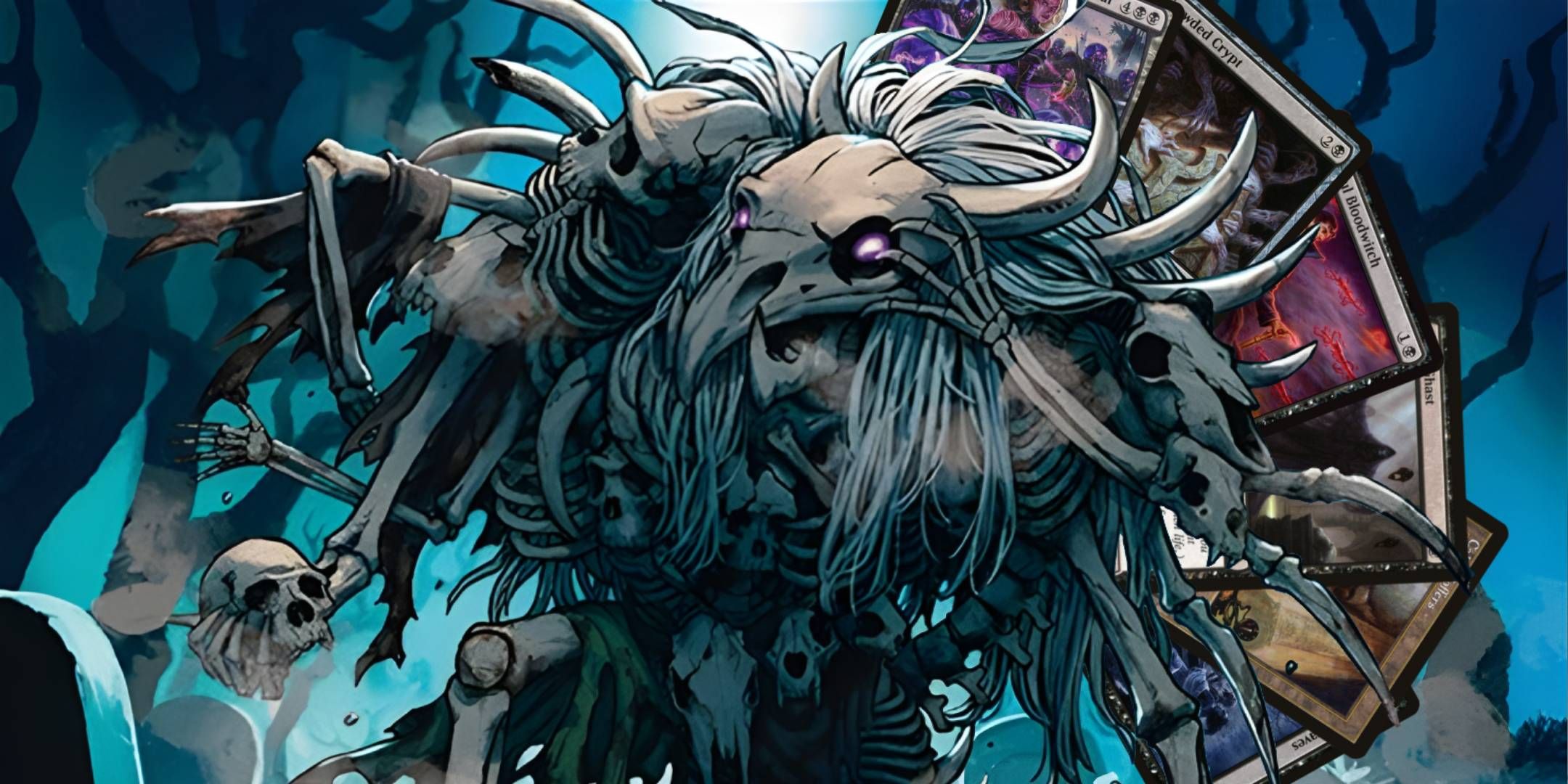
Related
Magic: The Gathering – Ozox, The Clattering King Commander Deck Guide
Master Ozox, The Clattering King in our comprehensive MTG Commander Deck guide.
Isareth can reanimate a creature each time she attacks, for the low cost of that creature’s mana value. With mono-black’s mana acceleration and plentiful enter and leave effects, Isareth can turn your graveyard into an extension of your hand and make your opponents think twice about sending any creatures to your graveyard.
Sample Decklist
|
Commander |
|||
|---|---|---|---|
|
Isareth the Awakener |
|||
|
Creatures (25) |
|||
|
Archfiend’s Vessel |
Ayara, First of Locthwain |
Boggart Trawler // Boggart Bog |
Burnished Hart |
|
Carrion Feeder |
Corpse Connoisseur |
Crypt Ghast |
Deathcap Marionette |
|
Demon’s Disciple |
Dusk Mangler |
Gray Merchant of Asphodel |
Grim Haruspex |
|
Leaden Myr |
Massacre Wyrm |
Morbid Opportunist |
Nirkana Revenant |
|
Oriq Loremage |
Plaguecrafter |
Sepulchral Primordial |
Solemn Simulacrum |
|
Syr Konrad, the Grim |
Tormod, the Desecrator |
Vile Entomber |
Vilis, Broker of Blood |
|
Void Maw |
|||
|
Sorceries (9) |
|||
|
Agadeem’s Awakening // Agadeem, the Undercrypt |
Breach the Multiverse |
Buried Alive |
Diresight |
|
Dread Return |
Feed the Swarm |
Living Death |
Reanimate |
|
Victimize |
|||
|
Instants (12) |
|||
|
Ashnod’s Intervention |
Corrupted Conviction |
Dark Ritual |
Deadly Dispute |
|
Defile |
Entomb |
Fell the Profane // Fell Mire |
Hagra Mauling // Hagra Broodpit |
|
Malakir Rebirth // Malakir Mire |
Mausoleum Secrets |
Songs of the Damned |
Village Rites |
|
Artifacts (17) |
|||
|
Arcane Signet |
Ashnod’s Altar |
Charcoal Diamond |
Conjurer’s Closet |
|
Crowded Crypt |
Darksteel Plate |
Desecrated Tomb |
Everflowing Chalice |
|
Extraplanar Lens |
Isochron Scepter |
Jet Medallion |
Key to the City |
|
Mind Stone |
Skullclamp |
Sol Ring |
Swiftfoot Boots |
|
Thieve’s Tools |
|||
|
Enchantments (4) |
|||
|
Animate Dead |
Phyrexian Arena |
Ripples of Undeath |
Scion of Halaster |
|
Lands (32) |
|||
|
Bojuka Bog |
Cabal Coffers |
Cabal Stronghold |
Nykthos, Shrine to Nyx |
|
Rogue’s Passage |
Spymaster’s Vault |
Swamp x22 |
Urborg, Tomb of Yawgmoth |
|
Urza’s Cave |
War Room |
Witch’s Cottage |
|
The Commander
Isareth the Awakener is a 3/3 Human Wizard with deathtouch that costs two black and one generic mana. Whenever she attacks, you can pay any amount of generic mana to return a creature with that mana value from your graveyard to play.
Creatures that come into play from Isareth the Awakener’s ability gain a corpse counter, and if they leave play, they instead get exiled, preventing you from reusing her ability on the same creature over and over again.
Corpse counters have no effect on their own, and only serve to remind you which creatures Isareth reanimated. Removing them with effects like Power Conduit does not stop them from being exiled when they die.
One of the main draws of playing reanimation decks is getting creatures into play for less than their mana value, which Isareth doesn’t do — instead she allows you to use your graveyard like an extension of your hand. This has some advantages, like not having a maximum graveyard size, and the availability of low-cost graveyard tutors in black.
Isareth’s reanimation ability is incredibly versatile, but not so specific that the deck falls apart without her. Including several other reanimation effects allows you to play effectively with and without her, and can help you dodge the commander tax by reanimating her from your graveyard instead of re-casting her once she dies.
How To Build The Deck
To use Isareth’s ability to full effect, you need to meet three criteria: have worthwhile creatures in your graveyard, enough mana to hard-cast them, and be able to attack safely.
Adding creatures to your graveyard is reasonably simple: you can sacrifice them, discard, mill, or use graveyard tutors like Entomb to put the perfect creature in your graveyard. Since you’ll usually need to pay the full mana value to cast them, the best deal is to hard-cast from your hand, then use Isareth to give them a second chance after they die.
The creatures themselves can be a mix of big bombs and cheap utility effects that trigger when they enter or leave the battlefield, because after casting Isareth you don’t really want to wait for four more turns to use her. If you can remove her exile replacement effect, that’s even better, because you can just reuse them after they die.
Finally, since you’ll be filling your graveyard with useful creatures and may not be able to attack safely with Isareth, you can include several other ways to interact with your graveyard. Classics like Living Death and Animate Dead fit right in with Isareth the Awakener.
Ramp
Black does really well in terms of ramp thanks to a handful of effects that reward you for using Swamps. Any mono-black deck can pick up a “Swamps matter” subtheme just for the mana acceleration.
Two of the most popular examples are Cabal Coffers and its little brother, Cabal Stronghold. Both reward you for having multiple Swamps in play by generating black mana based on the number you control for a small fee. Cabal Coffers is better in most circumstances, since it counts all Swamps, whereas Stronghold only counts basic ones, but both fit nicely in the deck.
Crypt Ghast is another Swamp payoff: for four mana you get a 2/2 Spirit that makes all of your Swamps produce two black mana instead of one. Like both of the Cabal lands, Crypt Ghast works better the more Swamps you control, but unlike the lands, it can also be summoned by Isareth the Awakener and other reanimation effects.
Everflowing Chalice is one of the most versatile mana rocks. You may be tempted to hold onto it for later when you can multikick it for a bunch of charge counters, but at the two-mana minimum to get it started, you’ll have the same mana output as a Mind Stone. Unlike Mind Stone, if you draw it much later in the game, you can still cast it kicked for even more mana.
Crowded Crypt is much less versatile, but it’s a thematic match for Isareth, as well as a functional one. For three mana, you get a simple rock that taps for one black mana, with the added effect of getting a corpse counter every time one of your creatures dies. Later, for six mana, you can sacrifice your Crowded Crypt for as many 2/2 Zombies as it had corpse counters.
If you include Nesting Grounds in your deck, you can also move corpse counters from creatures reanimated by Isareth onto Crowded Crypt. This doesn’t prevent those creatures from being exiled when they die, but it does give you more Zombies later. We decided that an extra Swamp was more useful in most cases, so Nesting Grounds didn’t make the Sample Decklist cut.
A key piece of tech for any mono-colored deck is Extraplanar Lens, which effectively doubles the mana production of a basic land of your choice. By exiling a basic Swamp, you’ll make all basic Swamps produce one more black mana.
The drawback is that your opponents will get the same benefit, although the odds are against them getting much out of it unless they’re also playing mono-black. If you have some extra money to invest in the deck, switch out your Swamps for Snow-Covered Swamps to prevent your opponents from getting any benefit.
Draw
Decks that leverage the graveyard as a resource to play cards have less need of draw engines, so some of the card draw you’d expect to find is replaced with self-mill effects.
Morbid Opportunist and Grim Haruspex both turn death into draw, allowing you to draw a card when a creature you control dies (or any creature, for Morbid Opportunist). Since you’re using your graveyard as a resource, there’s no shortage of sacrifice effects that you can use to trigger these at will, only to bring your creatures back a turn or two later.
Vilis, Broker of Blood is expensive to cast, but allows you to draw cards whenever you lose life. It also allows you to pay one life and one black mana to give any creature -1/-1, allowing it to serve as removal, card draw, and a beater with that 8/8 flying body.
Skullclamp is another classic draw engine. For one mana, you can equip it to any creature you control, giving it +1/-1 and giving you two cards when it dies. The attack bonus is occasionally useful, but the draw effect is incredibly efficient for a deck that’s already happy to sacrifice its own creatures.
Ripples of Undeath provides both card draw and graveyard filler by milling three cards each turn and then allowing you to put one of them in your hand. This allows you to pick which cards to keep in your graveyard (usually creatures), and which to put in your hand (usually reanimation effects).
Oriq Loremage is another great way to fill your graveyard with key creatures, tapping to tutor for any card and putting it in your graveyard. Use it to find any creature you want and then put it into play with Isareth or another effect that same turn.
Reanimation Station
So what happens if your graveyard is full of good stuff, but your opponents keep killing or countering Isareth? Backup reanimation options give you a chance to drop your bombs without relying on your commander.
Animate Dead and Reanimate are two of the best reanimation spells in the game, since they’re both cheap to cast and allow you to pull any creature out of any graveyard. Using one of these effects to put a bomb like Vilis, Broker of Blood into play on your second turn puts you at a huge advantage.
Dread Return is a little weaker, since it only allows you to reanimate a creature from your own graveyard, and at twice the cost of Animate Dead, but it has flashback so that you can use it again. Flashback also allows you to cast it from your graveyard if you mill or discard it, giving it additional flexibility.
To reanimate multiple creatures, Agadeem’s Awakening is a great tool. After the baseline investment of three black mana, you can reanimate as many creatures as you want, as long as you pay for the highest mana value and all the mana values are different. It can also be played as a land if you’re short.
Living Death is a combination of boardwipe and mass reanimate. For just five mana, it swaps the creatures in each player’s graveyards and battlefields. Since your deck fills your graveyard with creatures, you’re likely to get the best deal out of this, but it’s even better if you can sacrifice your whole battlefield before you cast it.
If you’re getting ready to play Living Death, it’s a good idea to hold onto Bojuka Bog or Boggart Trawler to exile the graveyard most likely to give you problems.
Deck Tech
One of Isareth’s major drawbacks is that if a creature she brought into play dies or returns to your hand or library, it gets exiled instead. Fortunately, there are a few ways to counteract that effect.
Isareth the Awakener’s ability is a replacement effect that replaces other kinds of leaving play with exile. But if a creature gets exiled, the replacement effect doesn’t kick in, because an effect can’t be replaced by the same effect. Conjurer’s Closet abuses this loophole by exiling a creature Isareth resurrected and then bringing it back. It then counts as a new creature, and Isareth’s ability no longer applies.
Void Maw offers an alternate solution: It has another replacement effect which exiles any creature that would go into a graveyard from play, but it can then move those exiled creatures into their owners’ graveyards to buff itself.
Since you have two replacement effects, you can stack them with Void Maw’s resolving first, allowing you to move creatures that died with Void Maw in play into your graveyard to come back again later.
Isareth will move creatures out of your graveyard almost every turn, so you can get some extra value out of cards that synergize with that movement.
Desecrated Tomb and Tormod, the Desecrator have similar names and effects: each of these permanents gives you a creature token when cards leave your graveyard, allowing you to build up a small army of 2/2 Zombies and 1/1 flying Bats as a bonus for using Isareth the Awakener or other effects to move creatures from the graveyard to the battlefield.
Syr Konrad, the Grim has near-perfect synergy in this deck: he provides an inexpensive, repeatable, instant mill option, punishes your opponents whenever any creature dies, then punishes them again when you reanimate something, or when anyone mills a creature. This is one of the first creatures you should try to get into play, and protect as well as Isareth herself.
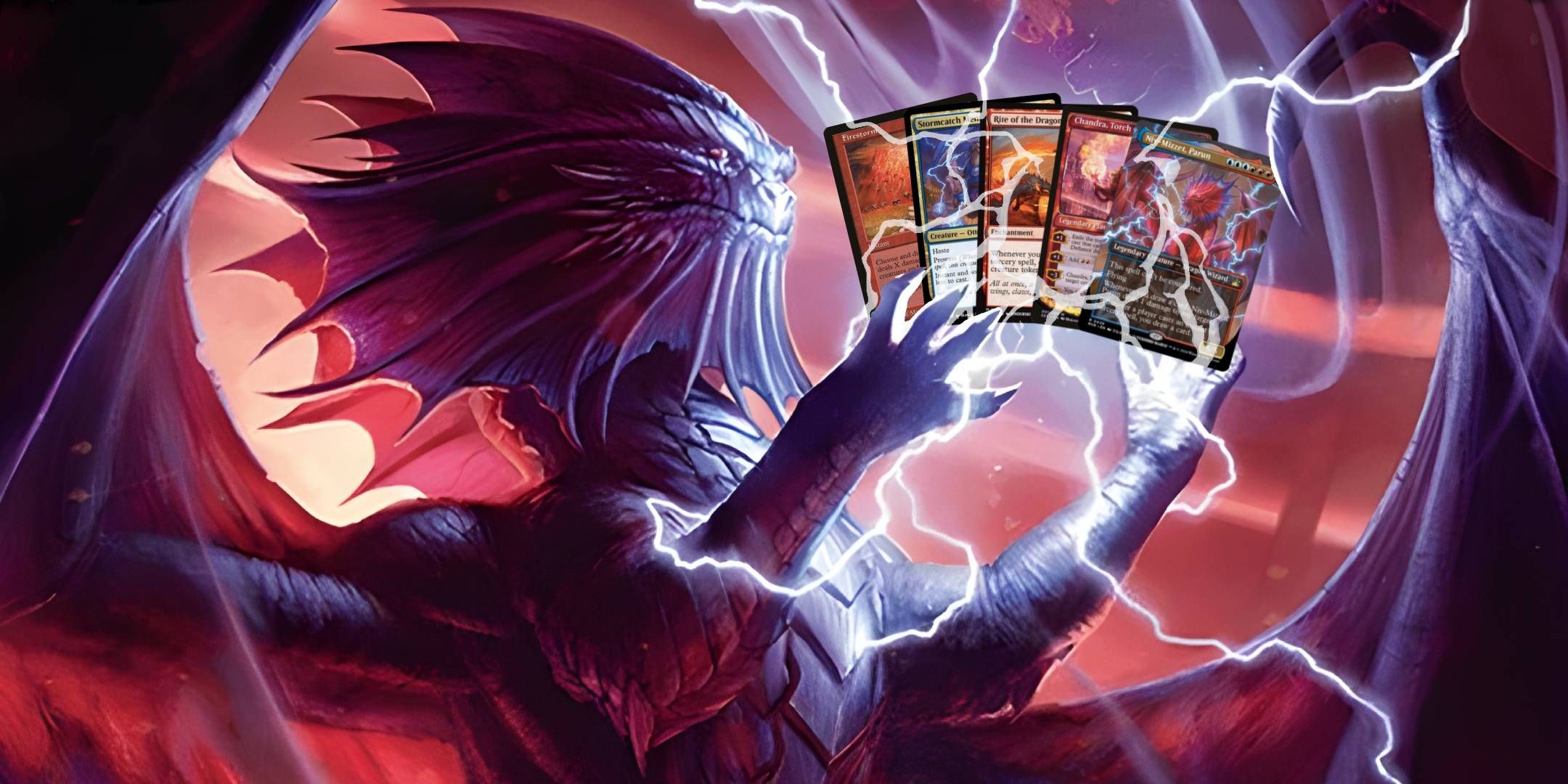
Next
Magic: The Gathering – Niv-Mizzet, Visionary Commander Deck Guide
Niv-Mizzet is among the most powerful and famous dragons in MtG – here’s how to make a deck with him at the forefront.
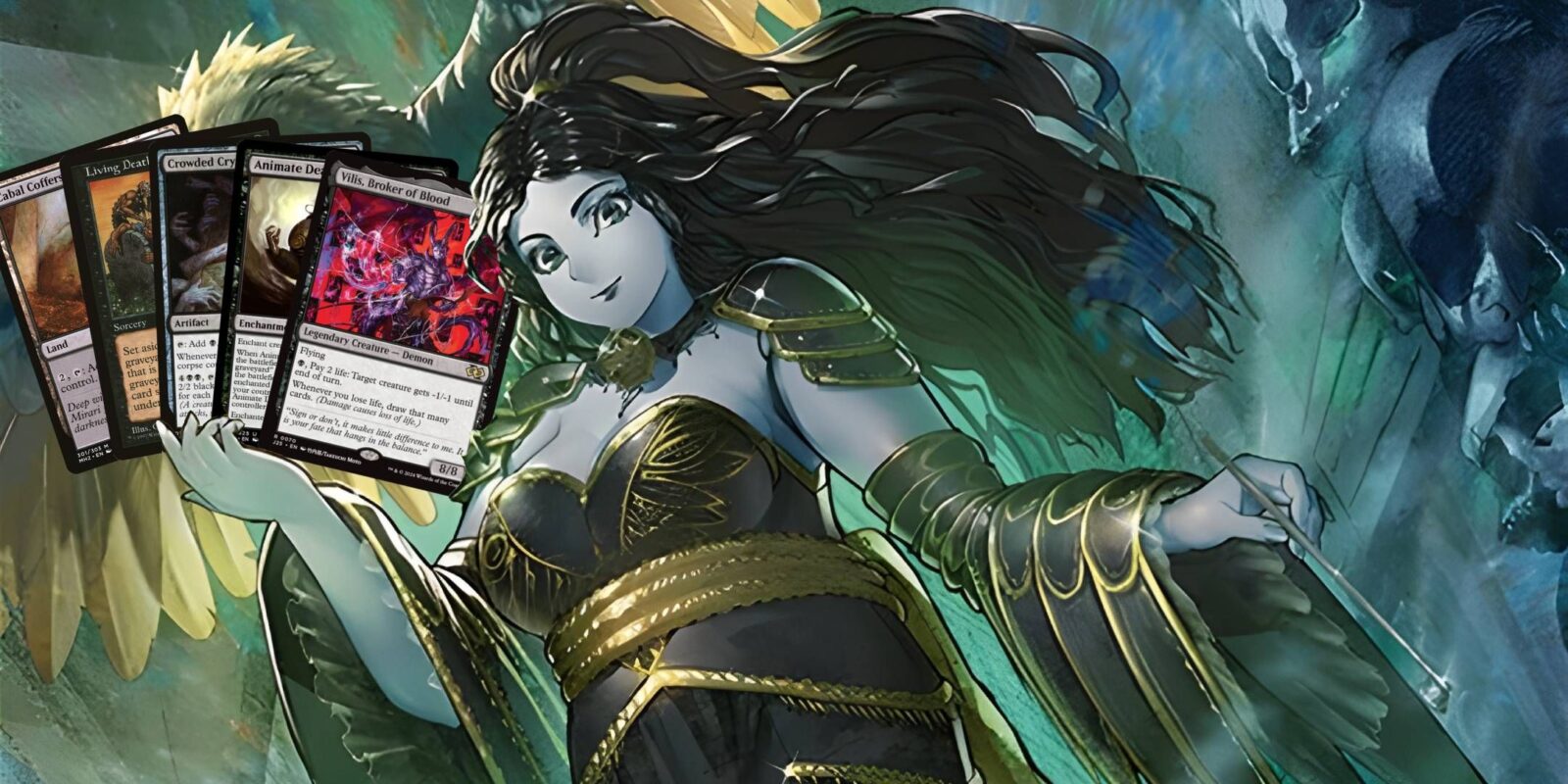
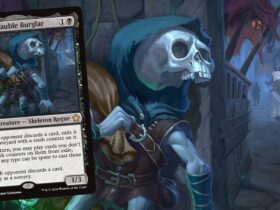
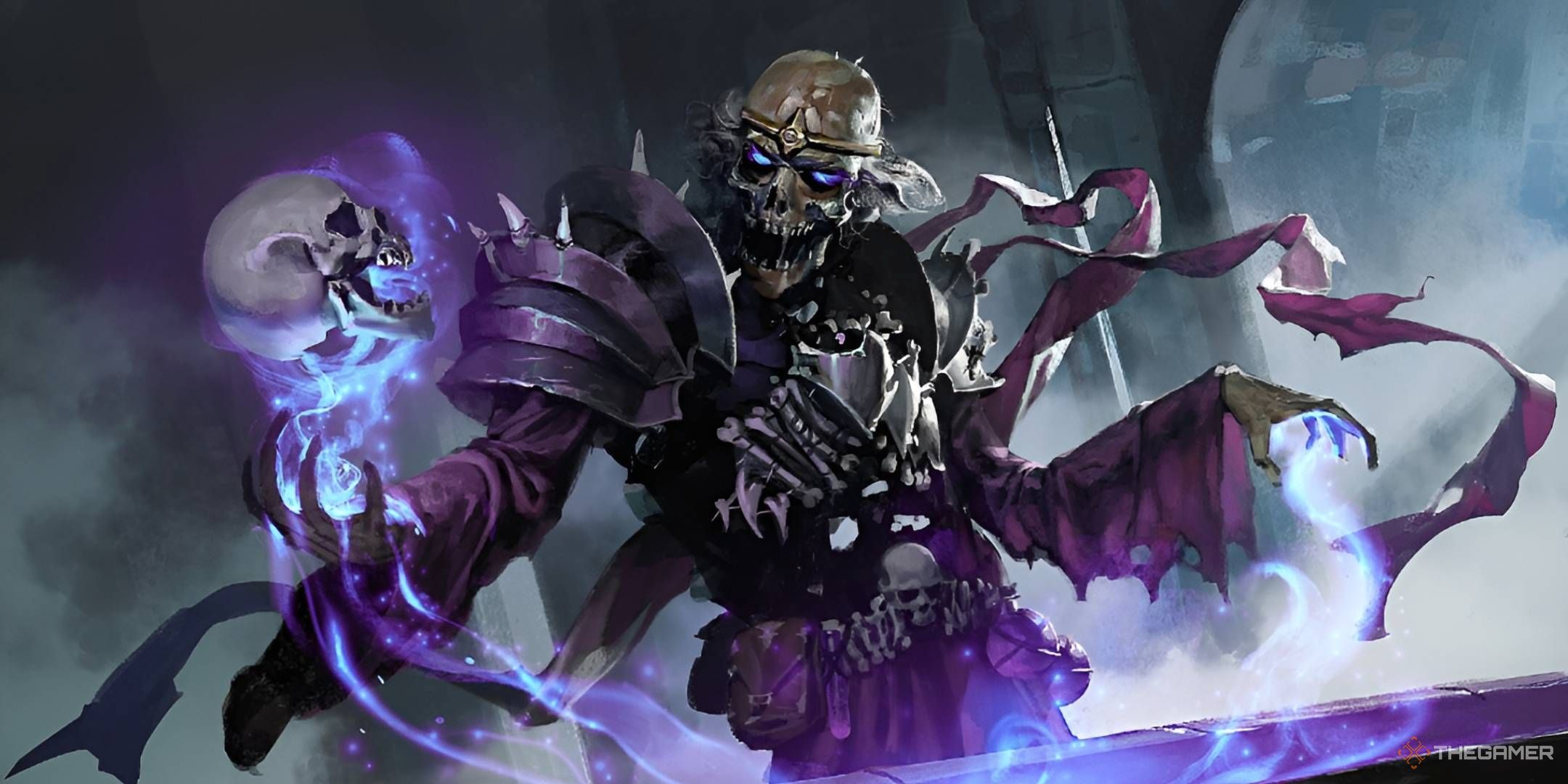
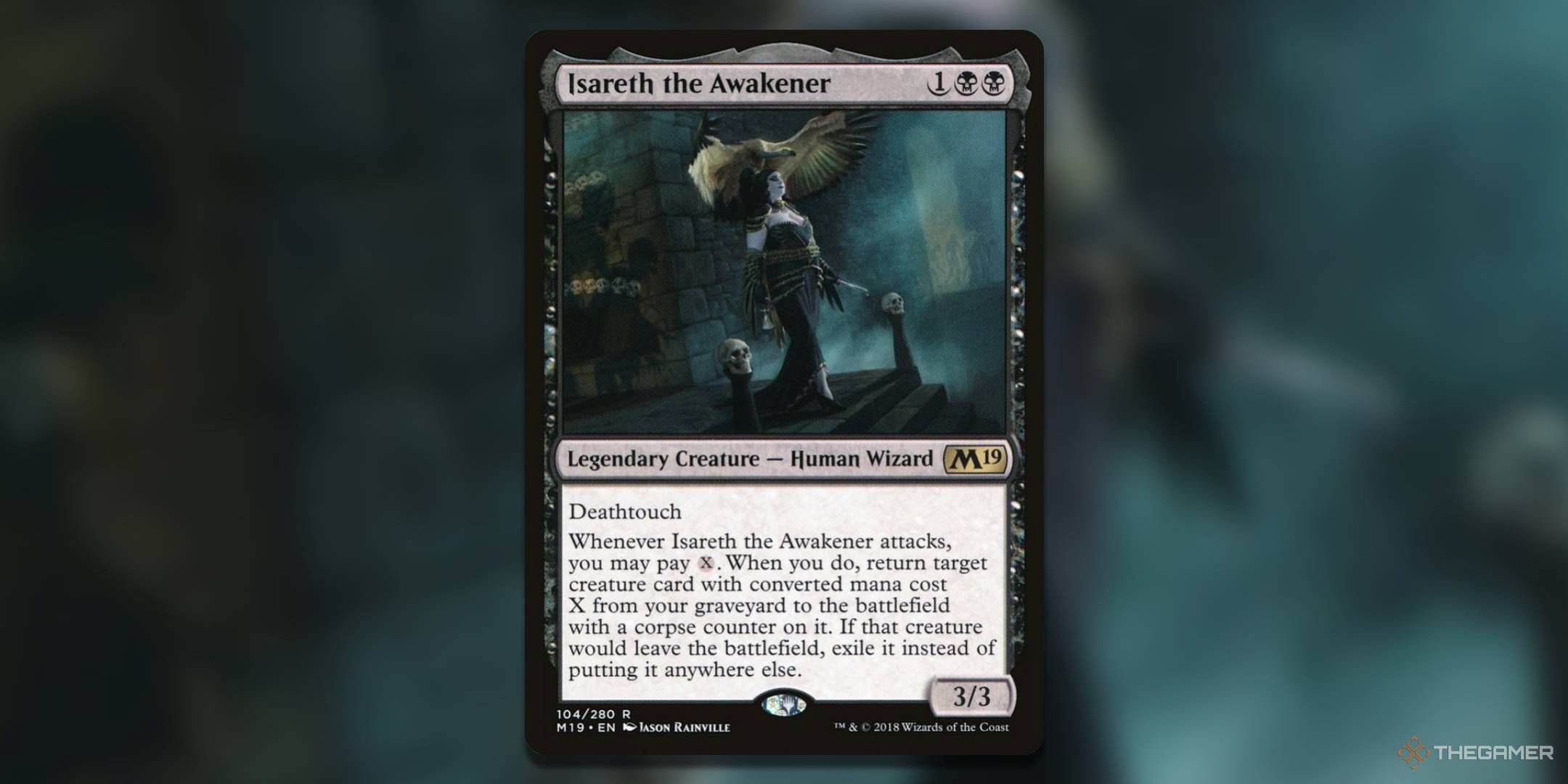
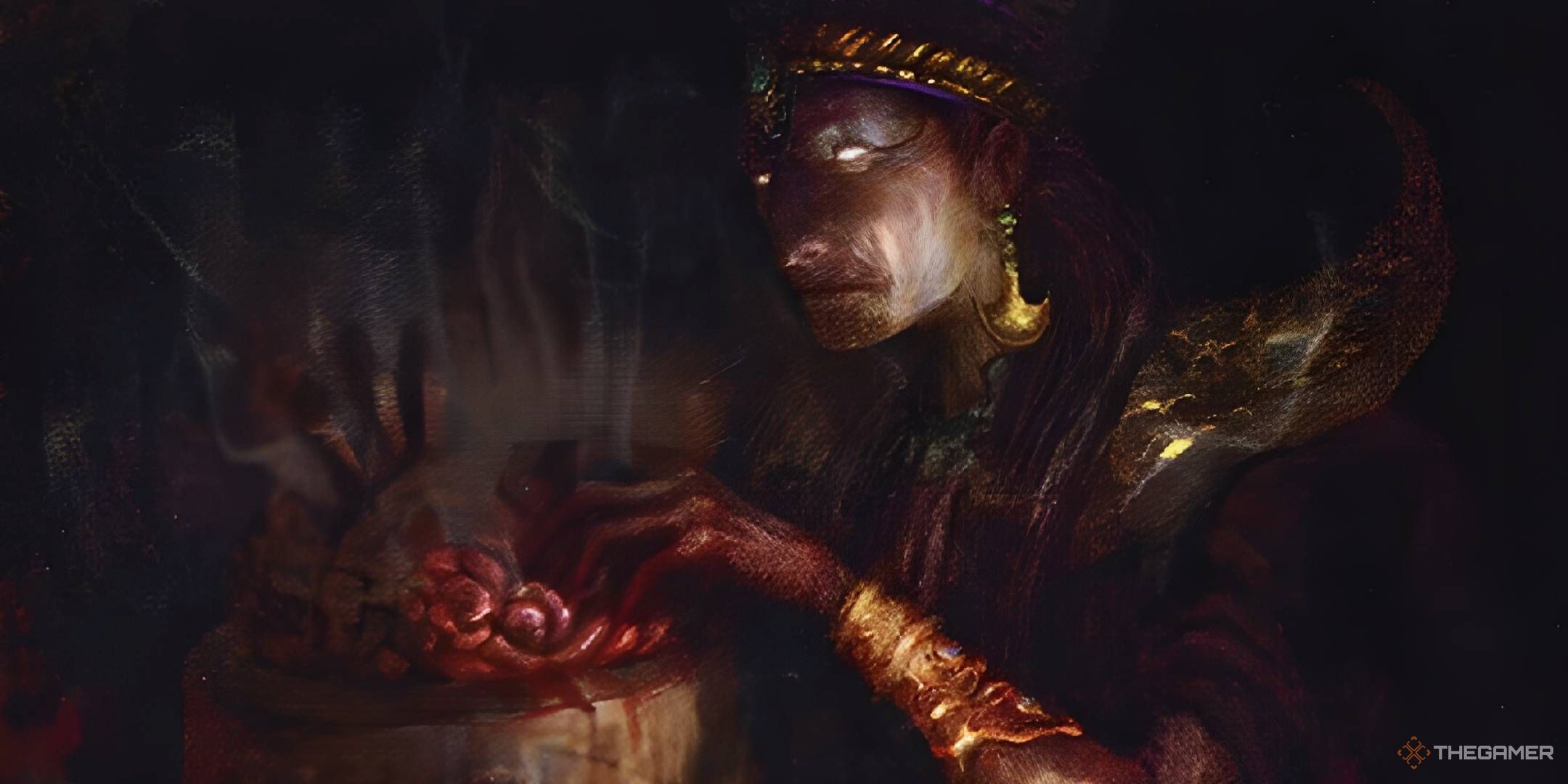
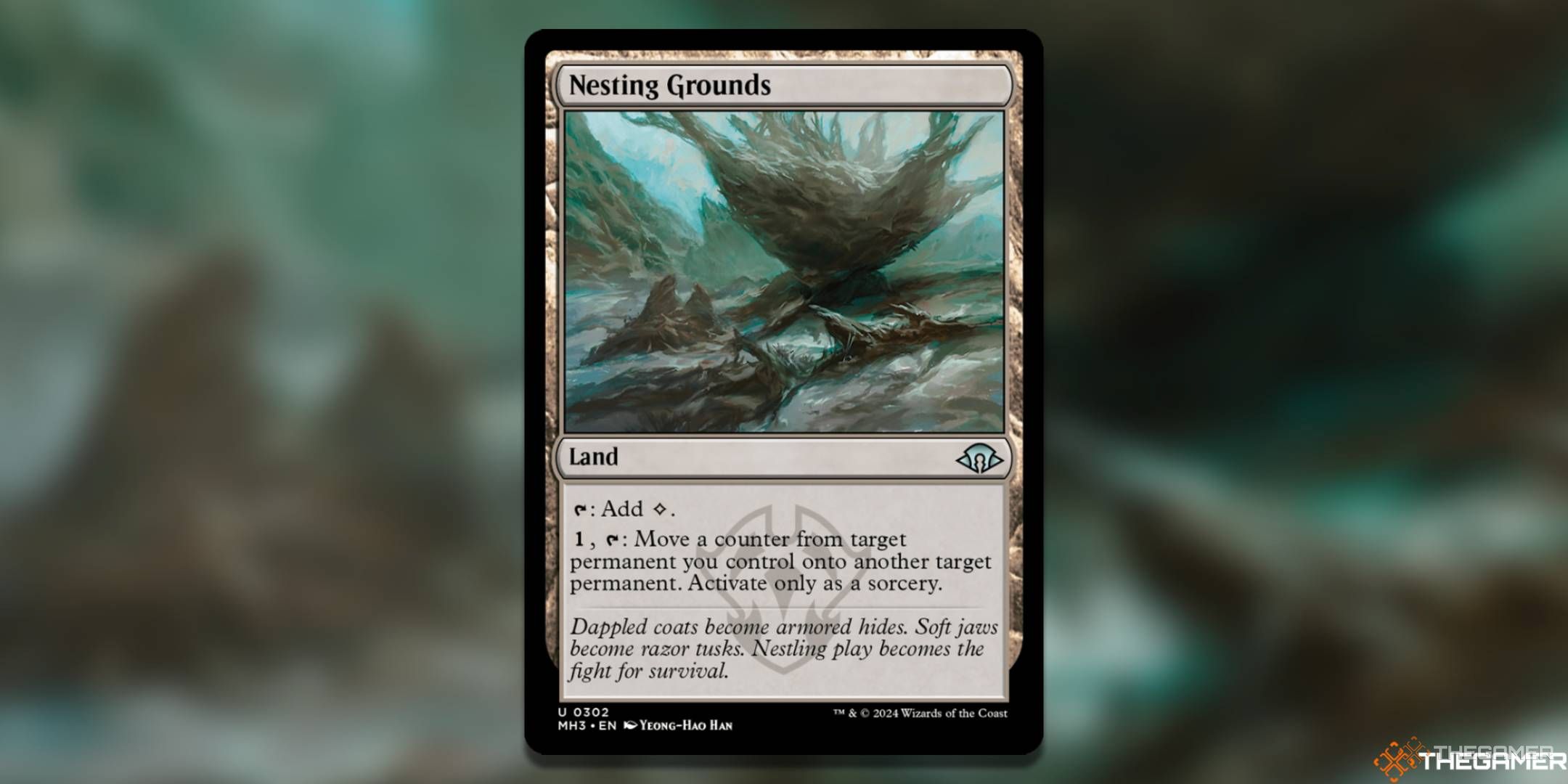
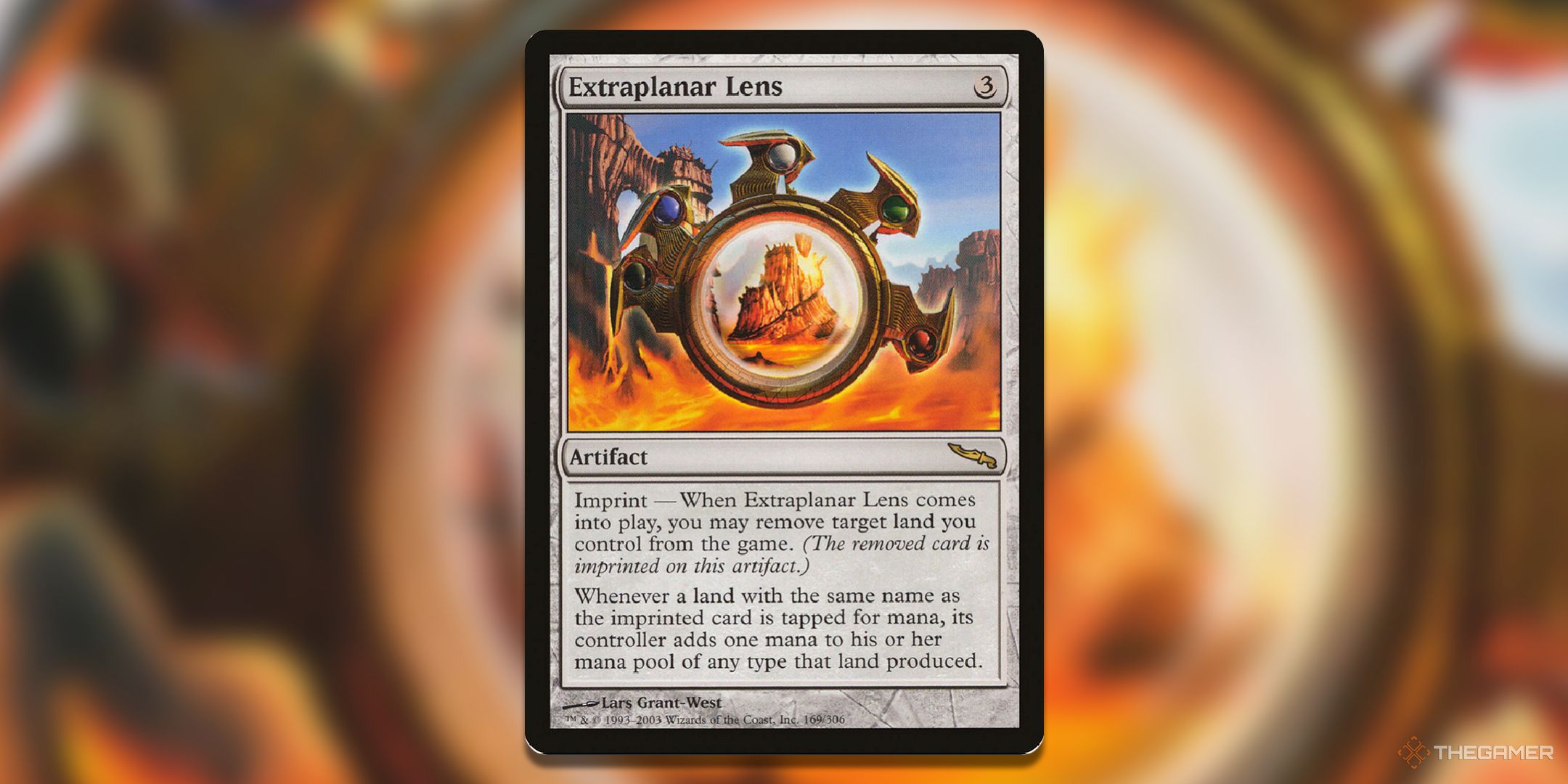
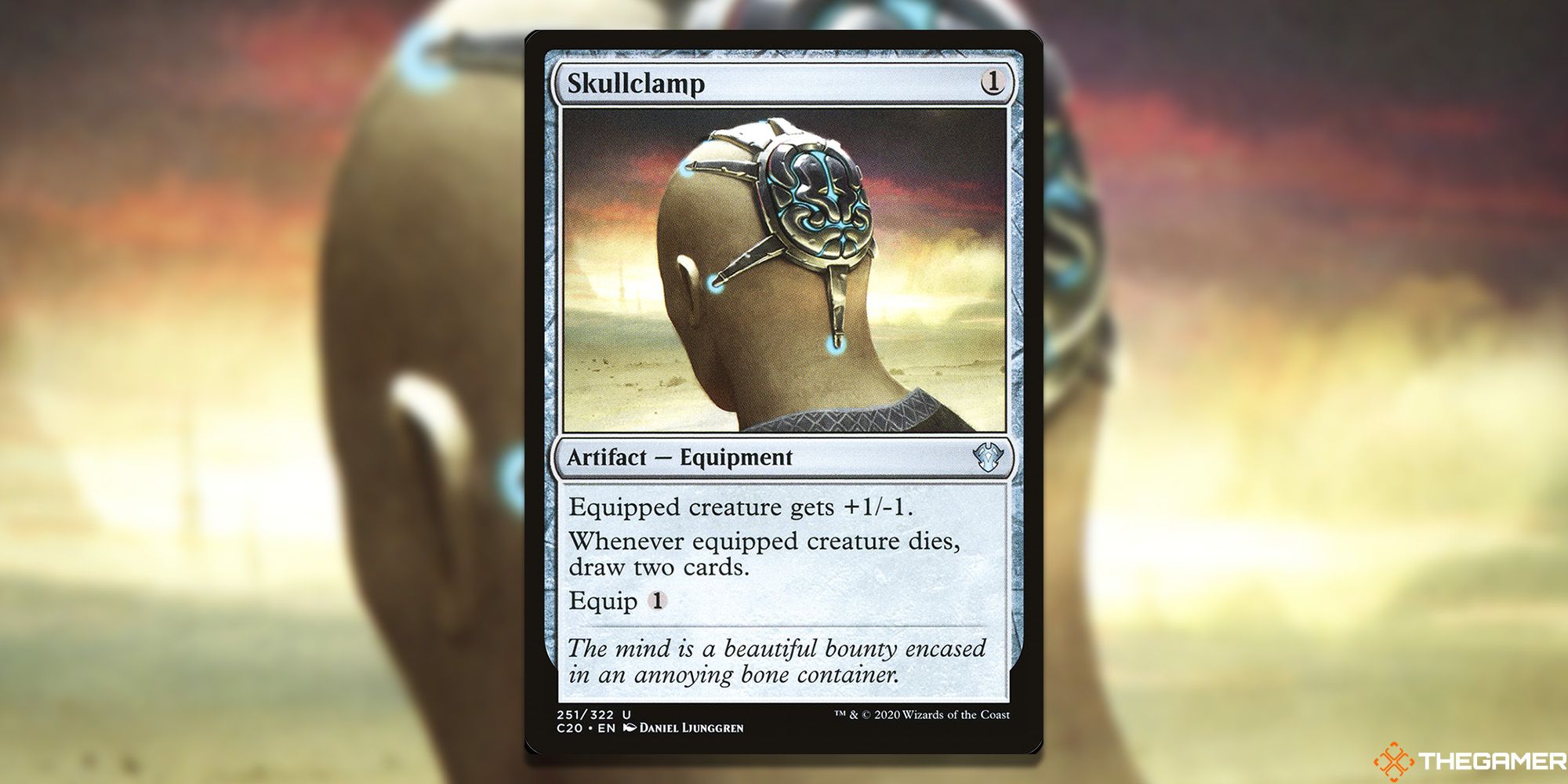
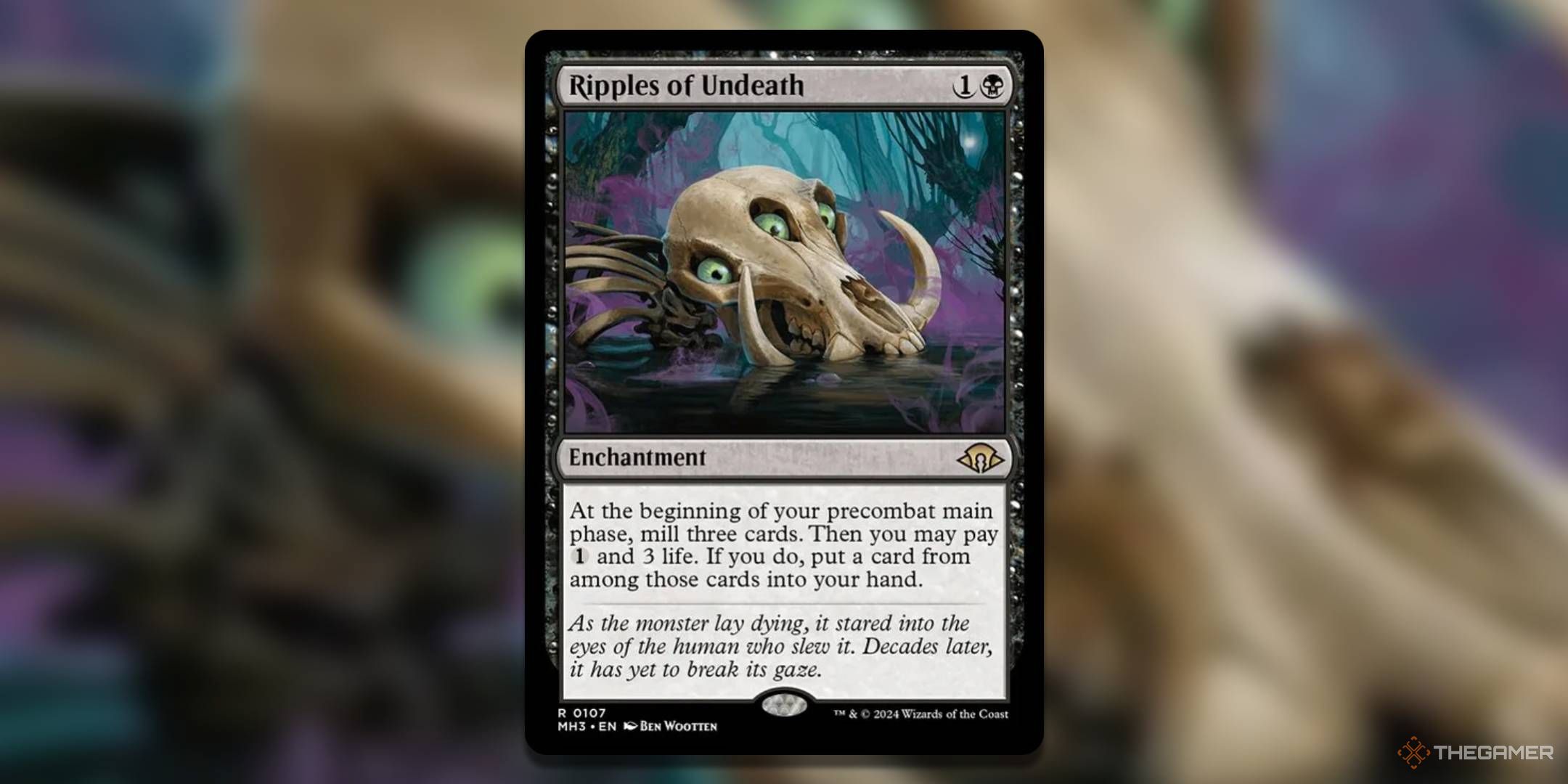
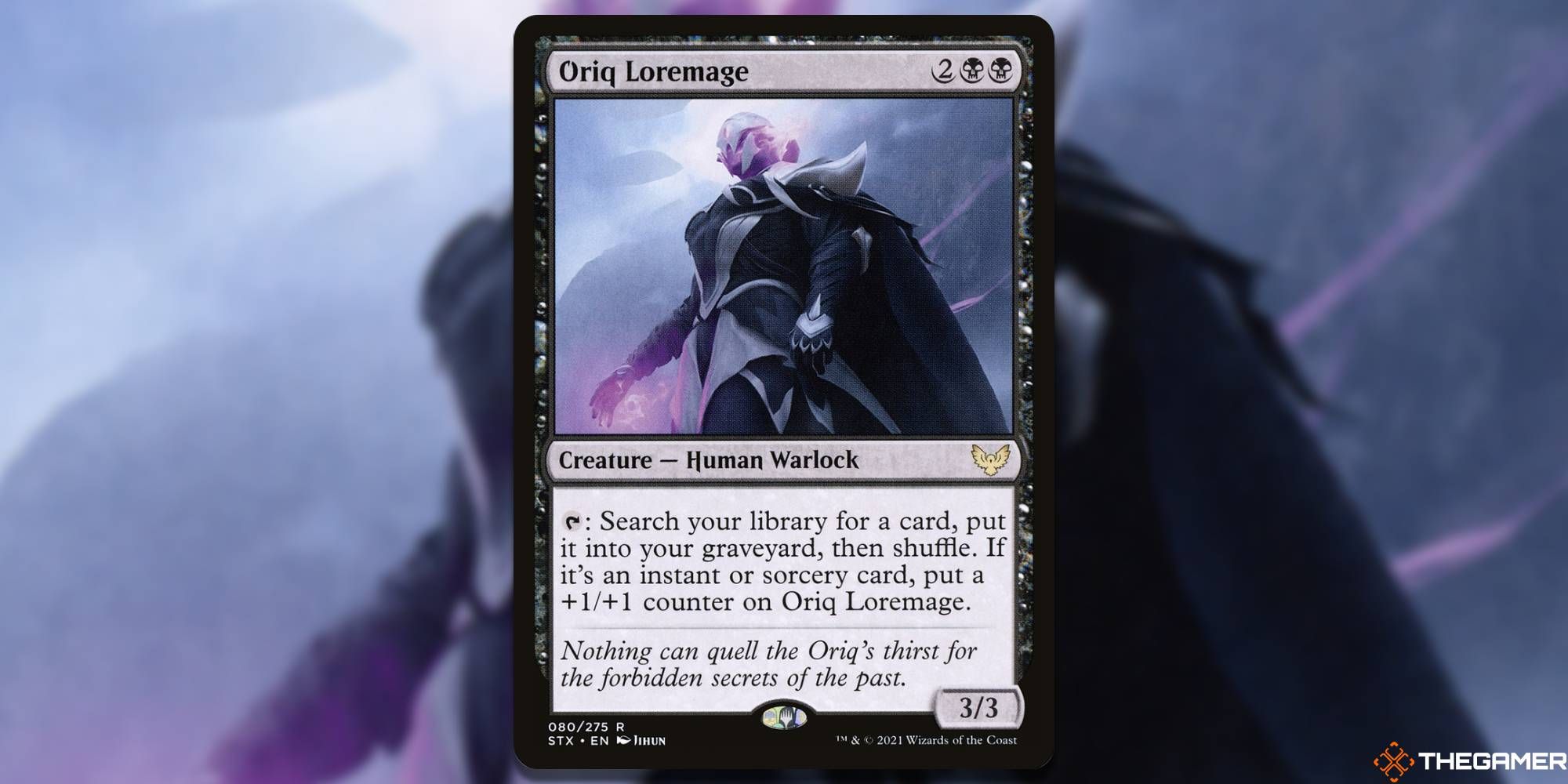
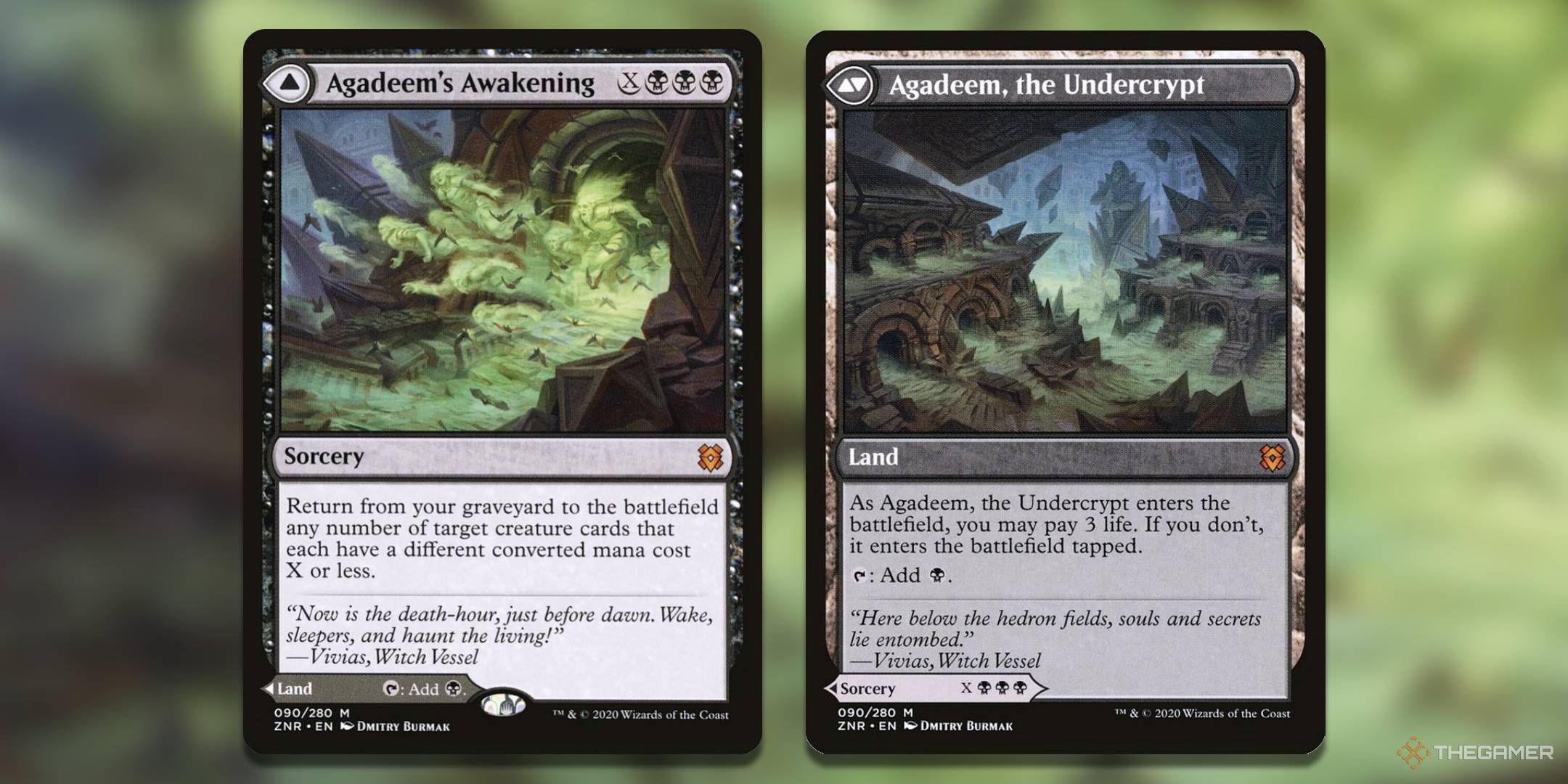
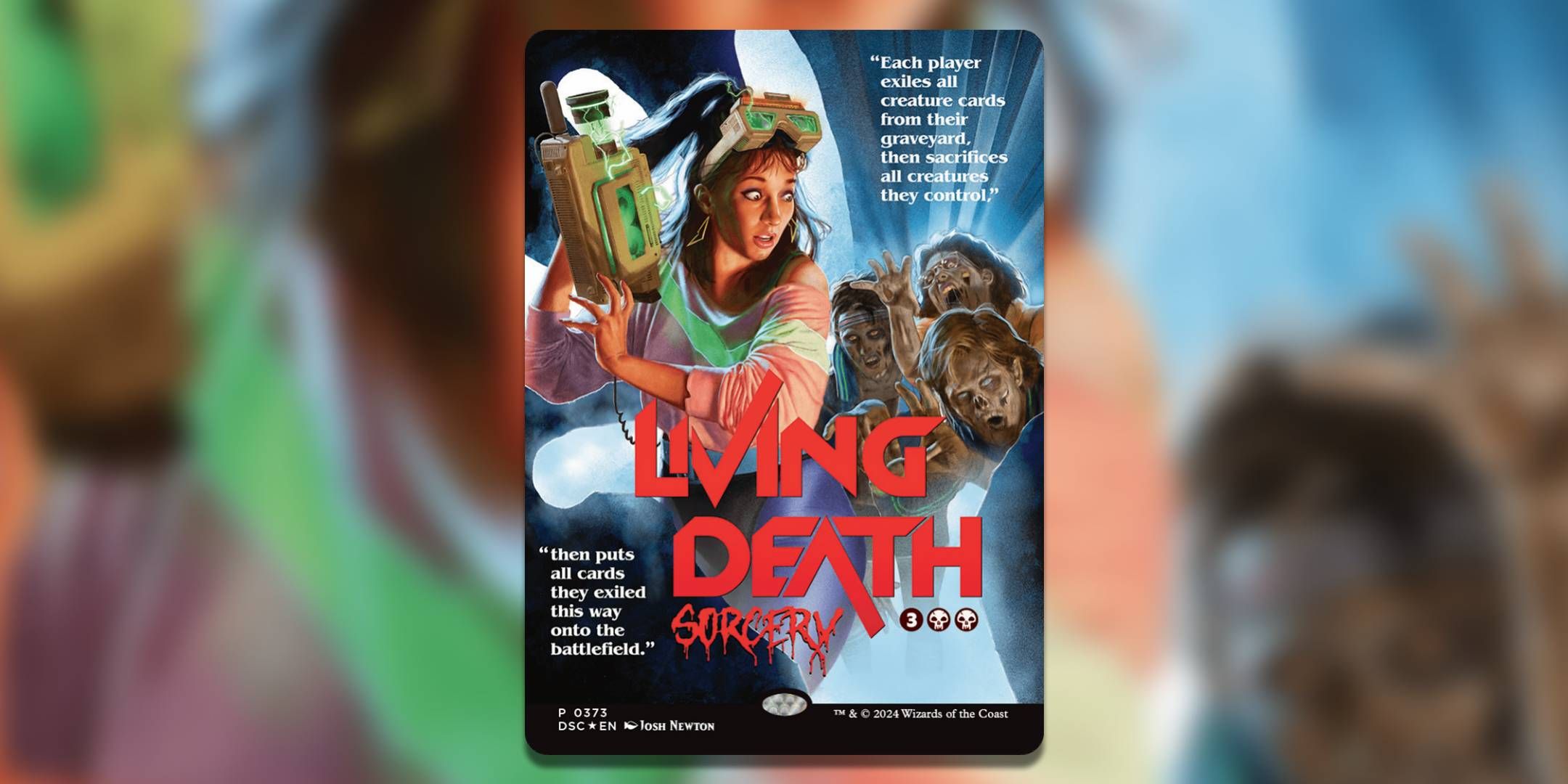
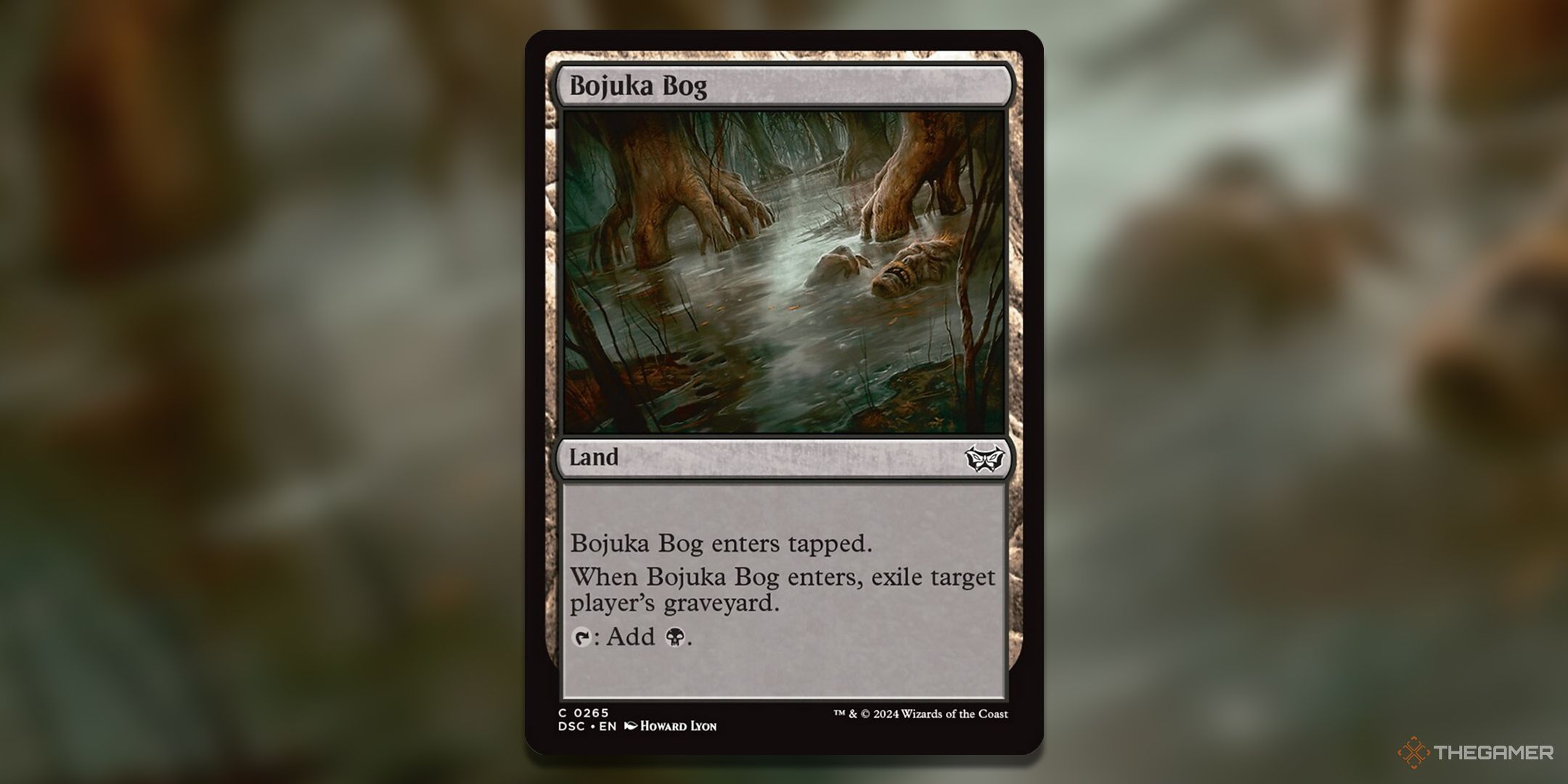




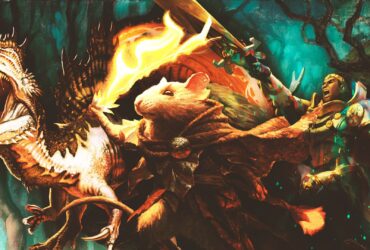

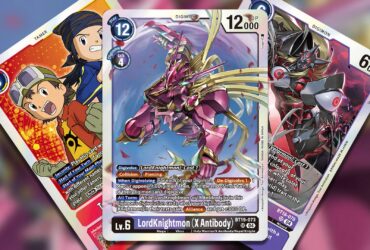

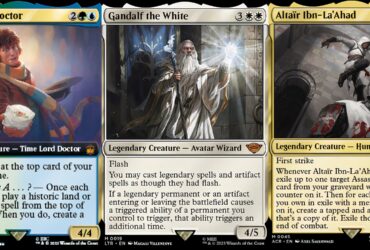
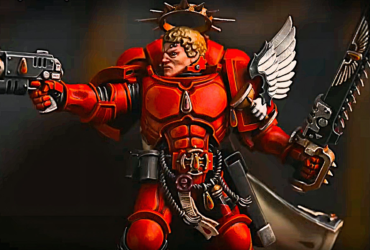
Leave a Reply